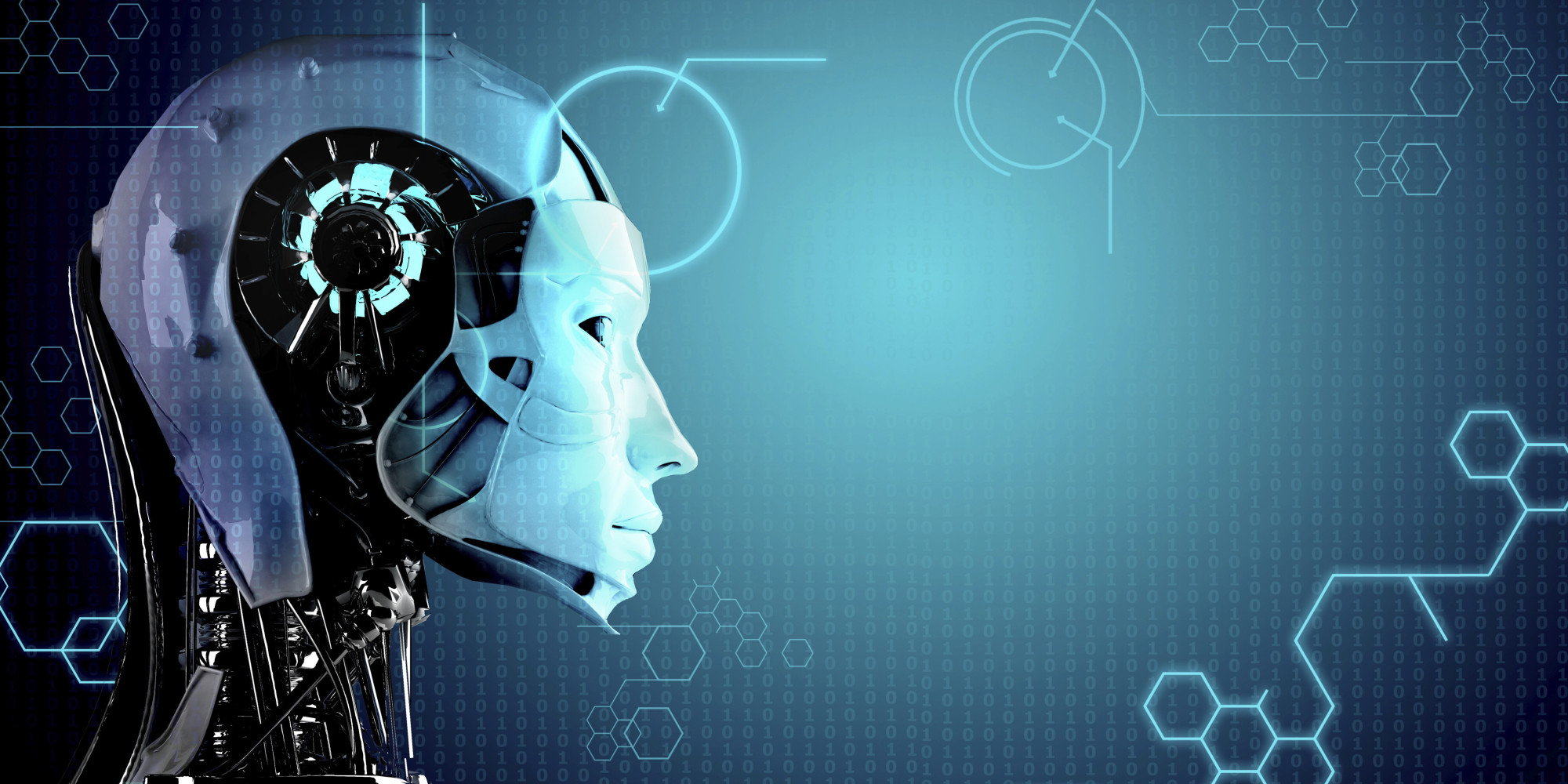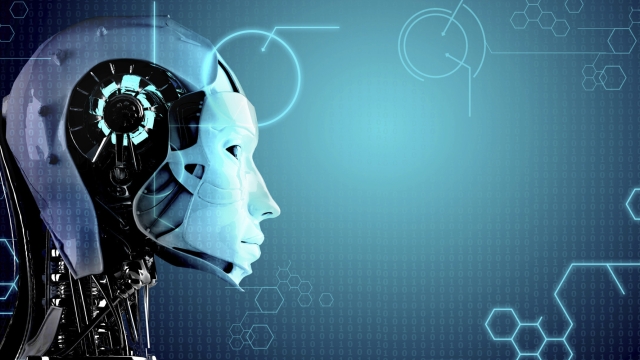The AI Revolution: Unleashing the Power of Artificial Intelligence

Artificial intelligence, one of the most exciting and rapidly advancing fields in technology, has made its way into our lives in more ways than we may realize. From virtual assistants on our smartphones to chatbots assisting us with customer service, AI has become an integral part of our daily routine. This transformative technology, often referred to as AI, has the capability to understand, learn, and solve complex problems, surpassing human limitations in many areas.
As we dive deeper into the AI revolution, it is crucial to understand what exactly AI is and how it functions. At its core, artificial intelligence is the development of computer systems that can perform tasks that would typically require human intelligence. This involves processes such as speech recognition, decision-making, problem-solving, and even creative tasks. By analyzing vast amounts of data and using algorithms, AI systems can learn from patterns, adapt to new information, and make predictions or recommendations based on this knowledge.
The potential of AI is immense, with its applications spanning across various industries. From healthcare and finance to manufacturing and transportation, artificial intelligence is revolutionizing the way we work, communicate, and interact with technology. It has already proven its worth in the medical field, aiding in the diagnosis of diseases, discovering new treatments, and even assisting in surgical procedures. In finance, AI algorithms are used to detect fraud, make investment decisions, and optimize trading strategies.
Moreover, the impact of artificial intelligence extends beyond individual tasks and industries. With the advent of machine learning and neural networks, AI systems have shown remarkable abilities in data analysis, allowing for the identification of patterns and trends that humans may miss. This can lead to significant breakthroughs in fields such as climate modeling, drug discovery, and even space exploration.
However, as we witness the rapid advancements in AI, it is important to address the ethical and societal implications that accompany this technology. Concerns surrounding privacy, bias in algorithms, and the displacement of jobs due to automation must be addressed to ensure AI is used responsibly and for the benefit of all.
In this article, we will explore the various facets of artificial intelligence, delving into its potential, challenges, and the future it holds. Join us as we unravel the power of AI and its far-reaching implications in shaping the world as we know it.
Understanding Artificial Intelligence
Artificial Intelligence (AI) has emerged as a powerful force in today’s technological landscape. It encompasses a wide range of techniques and technologies that aim to replicate or mimic human intelligence in machines. At its core, AI is all about creating computer systems that can perform tasks that would typically require human intelligence, such as learning, problem-solving, and decision-making.
AI is built upon the concept of machine learning, where algorithms are developed to enable machines to learn and improve from experience without being explicitly programmed. By analyzing massive amounts of data, AI algorithms can identify patterns, make predictions, and generate insights that can be invaluable in various fields, such as healthcare, finance, and manufacturing.
One key aspect of AI is its ability to process and interpret natural language. Natural Language Processing (NLP) allows machines to understand and communicate with humans in a way that feels natural and human-like. This technology enables virtual assistants, chatbots, and voice recognition systems to interact with users, making everyday tasks more convenient and efficient.
Another significant component of AI is computer vision, which enables machines to perceive, analyze, and understand visual information. By applying deep learning techniques, AI algorithms can recognize objects, identify faces, and even interpret emotions, opening up a plethora of possibilities in areas such as autonomous vehicles, surveillance systems, and medical imaging.
The wide-ranging applications of AI continue to transform industries and revolutionize the way we live and work. From improving customer service with personalized recommendations to enhancing drug discovery through advanced data analysis, AI holds immense potential to augment our capabilities and drive innovation like never before. As the AI revolution continues to unfold, it is crucial to grasp its intricacies and harness its power for the benefit of society.
Applications of AI
AI has revolutionized numerous industries and brought about significant transformations in various domains. From healthcare and finance to transportation and entertainment, the applications of artificial intelligence have permeated almost every aspect of our lives.
One area where AI has made remarkable strides is in healthcare. With its ability to analyze vast amounts of medical data, AI algorithms have been instrumental in diagnosing diseases, predicting patient outcomes, and even suggesting personalized treatment plans. This not only streamlines the decision-making process for healthcare professionals but also improves patient care and overall outcomes.
In the finance sector, AI has proven to be a game-changer. It has enabled organizations to automate and optimize various financial processes, such as fraud detection, risk assessment, and algorithmic trading. By analyzing large datasets and identifying patterns, AI algorithms can quickly detect potential fraudulent activities, mitigate risks, and make intelligent investment decisions, ultimately benefiting both financial institutions and their customers.
Moreover, AI has had a profound impact on the transportation industry. Autonomous vehicles, powered by AI systems, have the potential to revolutionize the way we travel. These vehicles can gather real-time data from their surroundings, make decisions based on that information, and navigate through traffic without human intervention. With this technology, we can expect improved safety, reduced traffic congestion, and increased efficiency in transportation systems.
In conclusion, the applications of AI are diverse and far-reaching. From healthcare to finance and transportation, artificial intelligence has proven itself to be a transformative force. With ongoing advancements in AI technology, we can expect even more innovative applications in the future, reshaping industries and enhancing our daily lives.
Challenges and Future Implications
Ethical Considerations
One of the major challenges that arise with the advent of artificial intelligence is the ethical implications it brings. As AI becomes increasingly sophisticated, it has the potential to make autonomous decisions that could have significant consequences on society. Questions surrounding the ethical use of AI, such as privacy concerns, bias, and accountability, become critical issues that need to be addressed. Striking a balance between technological advancement and ethical responsibility will be vital for ensuring a positive and equitable future with AI.
Employment Disruption
AI also poses challenges in terms of its impact on the job market. With the ability to automate various tasks and processes, there is a growing concern about the displacement of human workers. While AI has the potential to increase productivity and efficiency, it could result in job losses in certain industries. As AI continues to evolve, it is essential to consider strategies for retraining and upskilling the workforce to adapt to the changing job landscape. Collaborative efforts between AI systems and human workers may become necessary to create new opportunities and ensure smooth transitions in the workforce.
Technological Dependence
As our reliance on AI grows, we may become increasingly dependent on these systems, which can present both benefits and challenges. On one hand, AI can enhance our lives by providing personalized recommendations, streamlining processes, and improving efficiency. However, relying too heavily on AI can also lead to complacency and a loss of critical thinking skills. It is crucial to strike a balance between leveraging AI’s capabilities while also fostering human intelligence and decision-making abilities.
In conclusion, as artificial intelligence continues to advance and shape our world, it is crucial to address the ethical considerations it raises, prepare for potential employment disruptions, and find the right balance in technological reliance. By proactively addressing these challenges and actively shaping the future implications of AI, we can unlock its full potential to benefit society as a whole.


